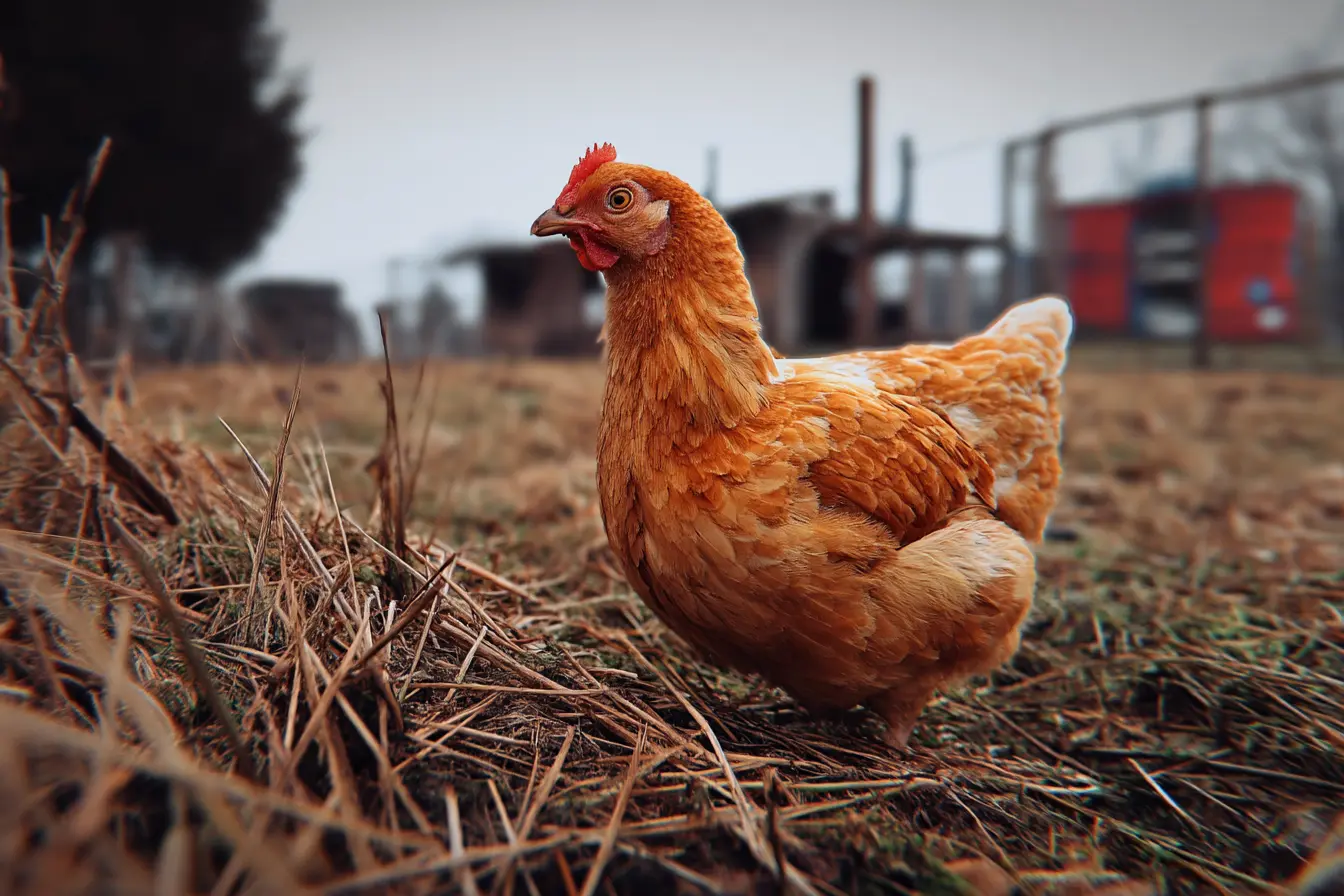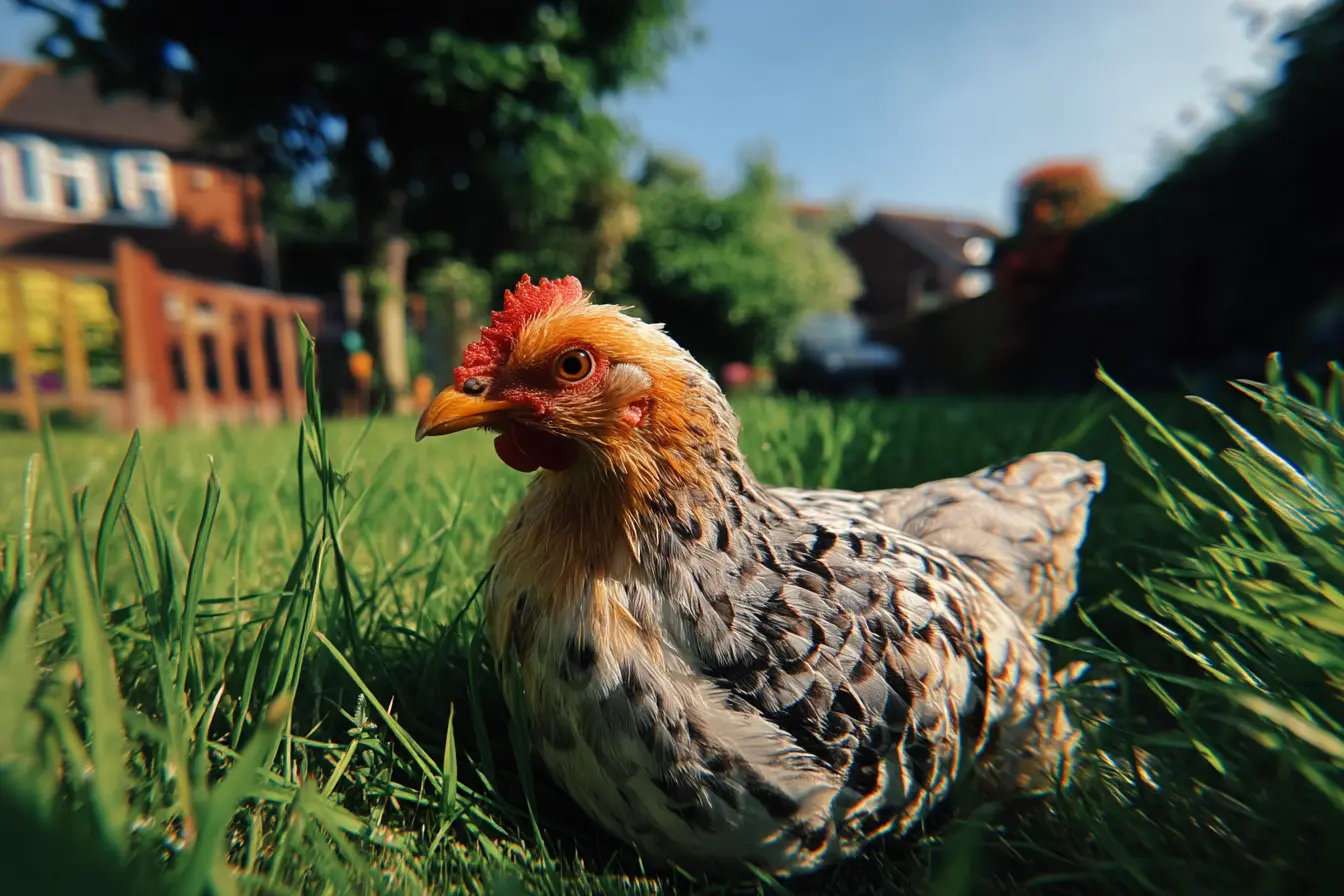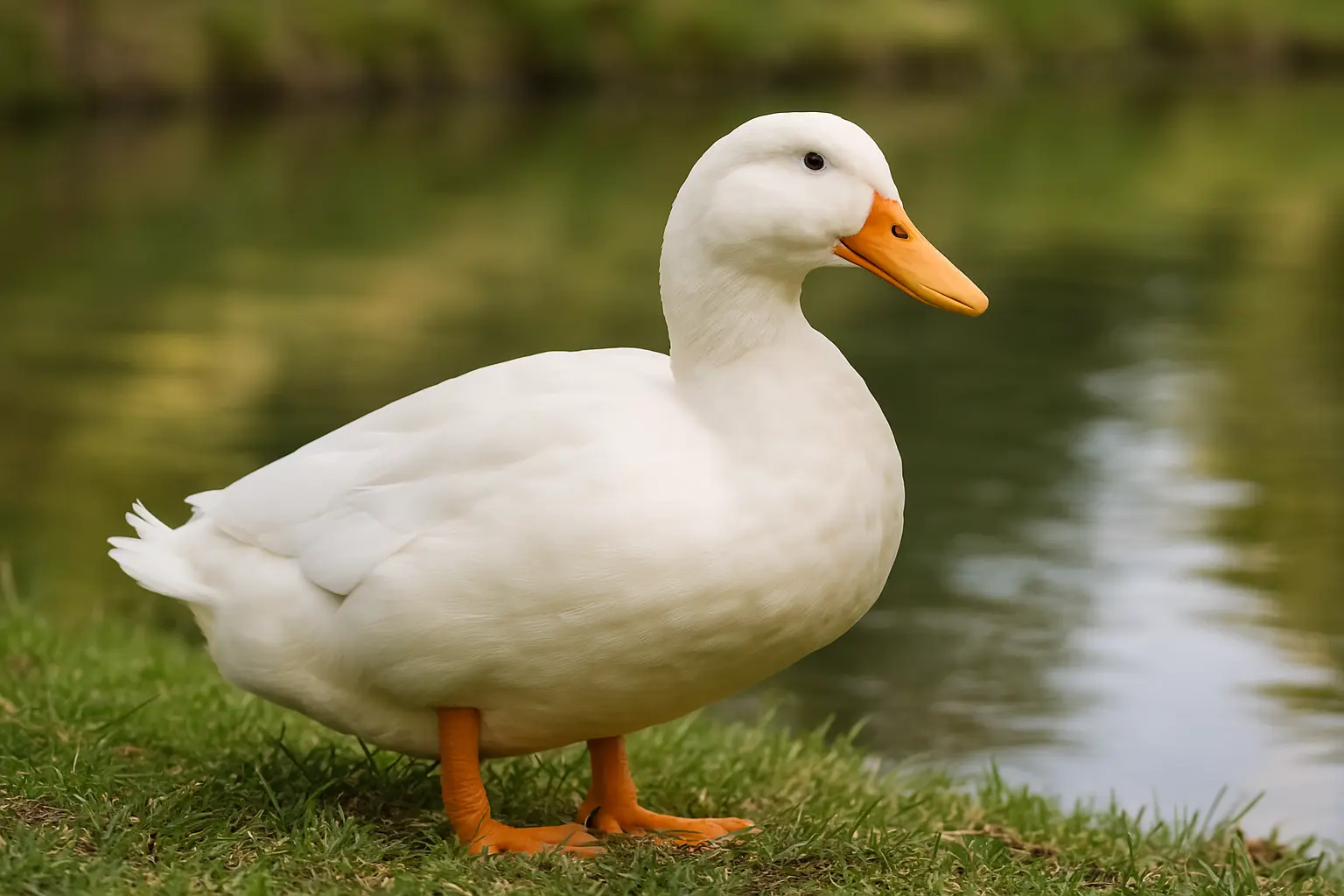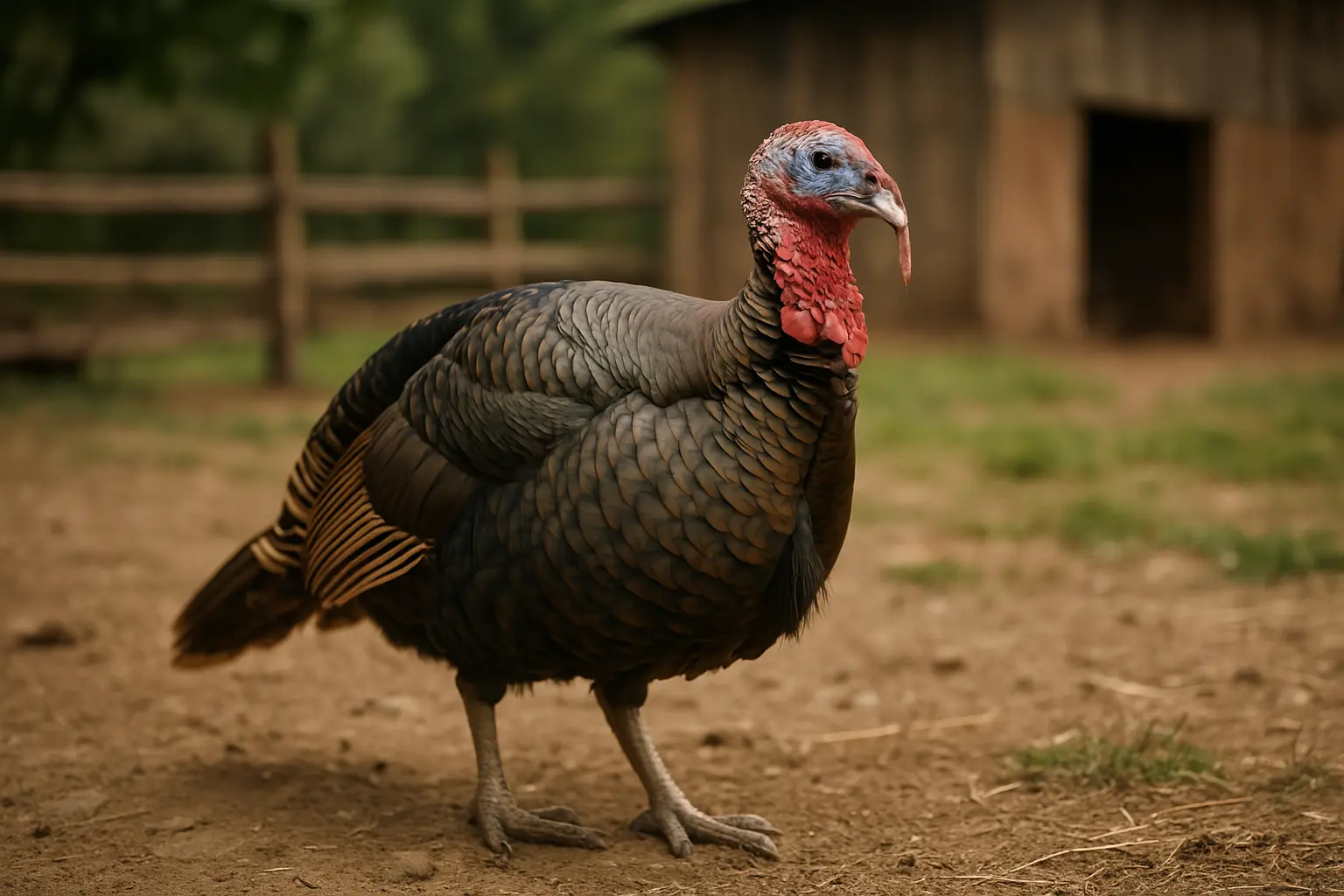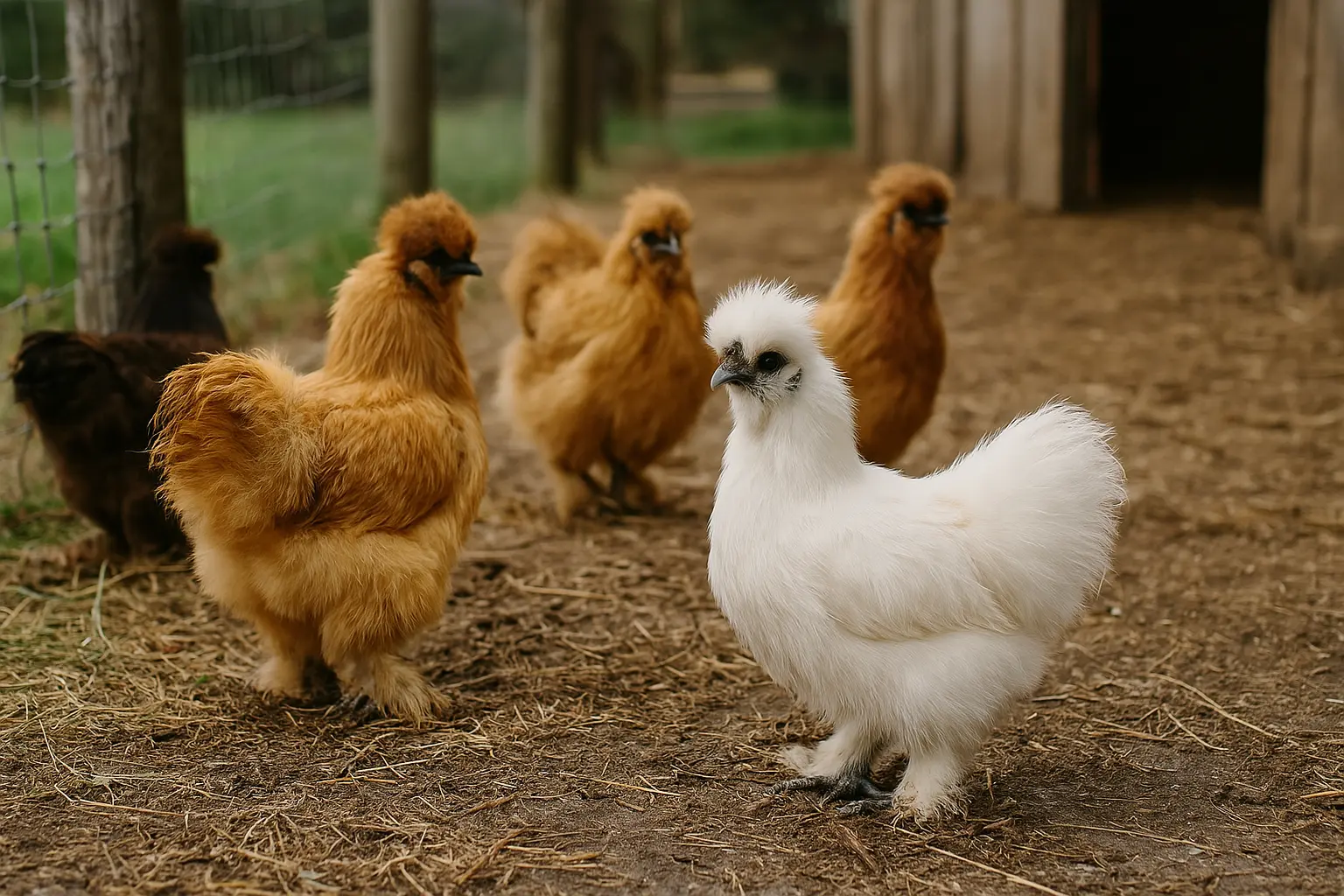
A Complete Guide to Keeping Silkie Chickens
Silkie chickens are one of the most beloved poultry breeds, known for their distinctive fluffy appearance, friendly temperament, and unique personality. Whether you are considering keeping Silkies as pets or for their eggs, this comprehensive guide will provide all the essential information you need to care for these charming birds.
Introduction to Silkie Chickens
Silkie chickens originate from Asia and are easily recognisable by their soft, fur-like feathers, which lack the typical barbicels found in standard feathers. Their gentle nature and unusual looks make them a popular choice for backyard poultry keepers in the UK.
Key Characteristics:
- Lifespan: 7-9 years with proper care
- Egg Production: 100-150 small cream or tinted eggs per year
- Temperament: Gentle, friendly, and ideal for children
- Size: Small (hens weigh approximately 1-1.5 kg)
- Colour Varieties: White, black, buff, blue, partridge, and more
- Special Features: Black skin, five toes (instead of the usual four), and feathered feet
Why Choose Silkie Chickens?
Silkies are an excellent choice for poultry enthusiasts for several reasons:
- Great for Families: Their calm and friendly nature makes them perfect for children and beginners.
- Beautiful Appearance: Their fluffy plumage and unique features add charm to any flock.
- Excellent Brooders: Silkies have a strong maternal instinct and are often used to hatch eggs from other breeds.
- Cold Tolerance: Despite their delicate appearance, they can handle the UK's cooler climate with appropriate care.
- Versatile Pets: They are content in confined spaces, making them ideal for urban and suburban gardens.
Housing Requirements
Providing a suitable and secure living environment is essential for Silkie chickens' health and happiness.
Coop Requirements
- Size: A minimum of 0.3 square metres per bird inside the coop.
- Ventilation: Adequate airflow to prevent dampness and respiratory issues.
- Nesting Boxes: Provide one box per 3-4 hens, filled with soft bedding.
- Perches: Lower perches are recommended, as Silkies have poor flight capabilities.
Run and Free-Range Space
Silkies enjoy foraging but are not as active as other breeds.
- Recommended Space: At least 1 square metre per bird in the run.
- Predator Protection: Due to their limited ability to fly and poor vision, ensure secure fencing to protect them from foxes and other predators.
- Weather Protection: Silkies’ feathers are not waterproof, so they require sheltered areas to avoid getting wet.
Feeding Your Silkie Chickens
Silkies thrive on a well-balanced diet tailored to their needs.
Essential Nutrition
- Layers Pellets (16-18% protein): Formulated to meet their nutritional requirements.
- Grit and Oyster Shells: To aid digestion and provide calcium for strong eggshells.
- Fresh Greens and Treats: Leafy greens, fruit, and occasional kitchen scraps in moderation.
- Fresh Water: Always provide clean, fresh water, especially during warmer months.
Feeding Tip: Avoid feeding them wet or sticky foods, as their fluffy beards can trap debris and lead to hygiene issues.
Health and Common Concerns
Silkie chickens are generally hardy but require special attention due to their unique characteristics.
Common Health Issues
- Mites and Lice: Their fluffy feathers provide an ideal environment for parasites. Regular dusting and coop cleaning are essential.
- Foot Problems: Their feathered feet can accumulate mud, so check regularly for signs of infection or scaly leg mites.
- Respiratory Issues: Silkies are prone to respiratory infections in damp conditions; ensure the coop remains dry and well-ventilated.
- Eye Blockage: Their head feathers can obscure vision, so occasional trimming may be required.
Preventative Care: Conduct routine health checks to spot any issues early and keep their living area clean and dry.
Silkie Chicken Behaviour and Handling
Silkies are incredibly docile and enjoy human interaction, making them easy to handle and tame.
- They love cuddles and often seek human companionship.
- Silkies do well in mixed flocks but should be kept with similarly docile breeds to prevent bullying.
- Their gentle nature means they are not well-suited to free-ranging in areas with aggressive breeds or predators.
Handling Tip: Regular handling from a young age helps to keep them tame and accustomed to human interaction.
Egg Production and Broodiness
Silkies are not prolific layers compared to other breeds, but they more than make up for it with their brooding abilities.
Egg-Laying Habits
- Expect around 2-3 eggs per week, usually cream or tinted in colour.
- Silkies can become broody frequently, often sitting on eggs for extended periods.
- If egg production is a priority, Silkies may not be the best choice; however, they are excellent for hatching and raising chicks.
Winter Care for Silkie Chickens
Silkies can tolerate cold weather but require some extra attention during the winter months.
- Shelter: Provide a well-insulated coop to keep them warm.
- Protection from Wet Conditions: Silkies’ feathers do not repel water well, so keep them dry to avoid hypothermia.
- Bedding: Use thick layers of straw or wood shavings for insulation.
- Additional Feed: Increase their food intake slightly to help maintain body heat.
Cold Weather Tip: Consider using a heat lamp in extreme cold, but ensure it's installed safely to prevent fire risks.
Breeding and Raising Silkie Chicks
Silkies are natural mothers and excellent at incubating eggs, whether their own or from other breeds.
Breeding Tips
- Provide a quiet, comfortable nesting area for broody hens.
- Ensure adequate nutrition for the hen during the brooding period.
- Chicks are slow to mature and require a warm, safe brooding environment.
Legal Considerations in the UK
Before keeping Silkies, be aware of local council regulations regarding backyard poultry.
- Noise Control: Silkies are quiet, but cockerels may not be allowed in some areas.
- Avian Influenza Precautions: Follow DEFRA guidelines to ensure biosecurity.
- Neighbour Relations: Inform neighbours and ensure the chickens do not cause any disturbances.
Conclusion
Silkie chickens are a delightful addition to any backyard flock, offering companionship, beauty, and their unique personalities. Their low maintenance needs, combined with their affectionate nature, make them an excellent choice for first-time chicken keepers and experienced poultry enthusiasts alike.
Whether you're looking for a pet, an occasional egg supplier, or a broody hen to hatch eggs, Silkies are sure to bring joy and charm to your garden.
Contents
- Introduction to Silkie Chickens
- Why Choose Silkie Chickens?
- Housing Requirements
- Feeding Your Silkie Chickens
- Health and Common Concerns
- Silkie Chicken Behaviour and Handling
- Egg Production and Broodiness
- Winter Care for Silkie Chickens
- Breeding and Raising Silkie Chicks
- Legal Considerations in the UK
- Conclusion
Tags
Vets near you
Speciality vets
- Aquatics vet specialists
- Birds vet specialists
- Camelids vet specialists
- Cats vet specialists
- Cattle vet specialists
- Deer vet specialists
- Dogs vet specialists
- Equines vet specialists
- Exotic vet specialists
- Goats vet specialists
- Pigs vet specialists
- Poultry vet specialists
- Sheep vet specialists
- Small Mammals vet specialists
- Wild vet specialists
Vet facilities
- Accessible by public transport
- Blood testing
- Car park nearby
- Client car park
- Dentistry
- Diagnostic imaging
- Disabled public access
- Flea and worm treatments
- Microchipping
- Mobile services
- Neutering
- Open at weekends
- Out-of-hours service
- Referral interests
- Referrals only
- Street parking outside
- Toilets available
- Vaccinations
